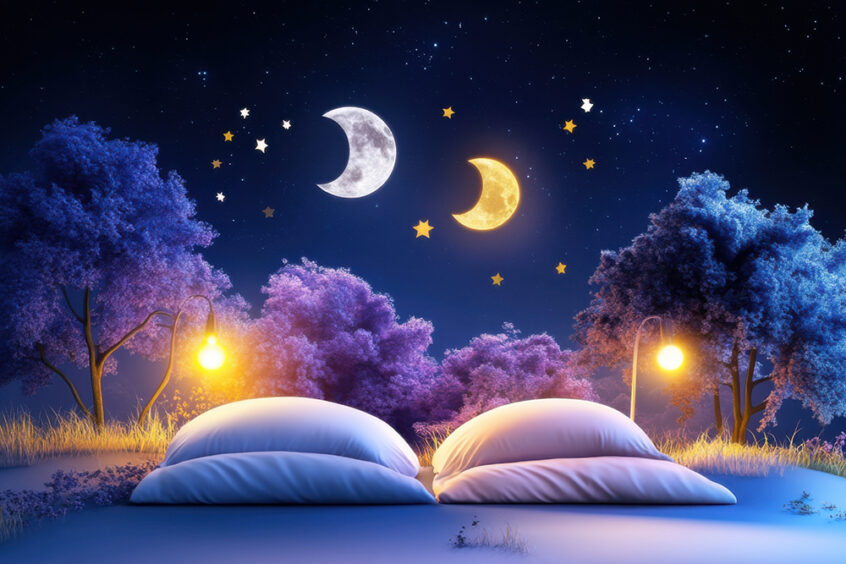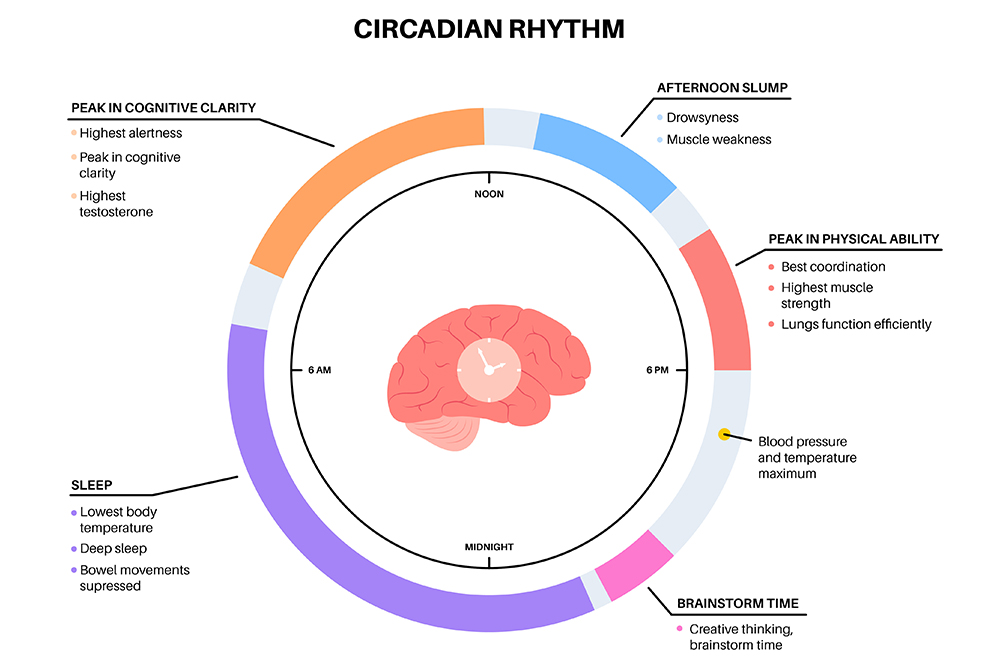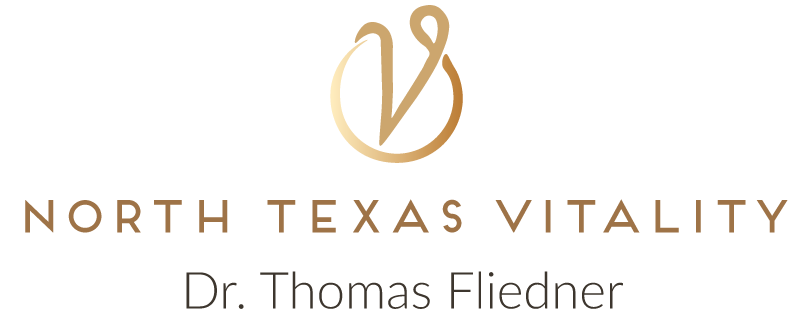Sleep & Hormones: Why Your Health Depends on Getting Better Rest

How hormone imbalances disrupt sleep — and how sleep disorders disrupt hormones.
Are you waking up at 3 a.m. every night, mind racing? Struggling to fall asleep even when you’re exhausted? Or maybe you sleep through the night but wake up feeling drained, foggy, and unrested. If that sounds familiar, hormonal imbalance may be the culprit.
At North Texas Vitality, we see it every day: people come in thinking their sleep issues are isolated. But the truth is, sleep and hormones are intimately connected — and when one is off, the other quickly follows.
In this article, Dr. Fliedner explores the powerful connection between hormone imbalance and sleep, shares expert-backed strategies from sleep expert Dr. Michael Breus, and explains how bioidentical hormone therapy can help you rest deeply and feel fully alive again.
The Hormone-Sleep Loop: What’s Really Going On?
Hormones are your body’s messengers, and they work around the clock to keep everything in balance, especially when you sleep. Key hormones like melatonin, cortisol, estrogen, progesterone, testosterone, thyroid hormones, and insulin all play critical roles in regulating your body’s sleep-wake cycle.
“When patients come in with chronic insomnia or nighttime anxiety, they’re often surprised to learn their hormones are driving the symptoms,” says Dr. Fliedner. “Sleep problems in perimenopause or low testosterone in men are often misdiagnosed — when really, it’s a hormonal cascade at work.”
Common Signs Your Sleep Struggles Are Hormonal:
- You fall asleep fine, but wake between 2 and 4 a.m.
- You have night sweats, even in a cool room.
- You feel wired, but tired at bedtime.
- You wake groggy, even after 7–8 hours in bed.
- You can’t nap, even when you’re exhausted.
Imbalances in estrogen and progesterone can cause sleep disruption during menopause. In men, declining testosterone and thyroid dysfunction can lead to restlessness, snoring, or sleep apnea.
On the flip side, when you’re not sleeping well, your cortisol and sleep patterns become dysregulated, blood sugar control worsens, and hormonal chaos follows. It’s a vicious cycle — but one that can be broken.
The 5 Sleep Strategies from Dr. Michael Breus
Known as The Sleep Doctor, Dr. Michael Breus emphasizes that better sleep isn’t just about sleeping more; it’s about syncing with your unique internal rhythm. His research shows that small, consistent habits can reset your body’s natural clock and transform your overall well-being.
Here are five key habits he recommends to improve your sleep, balance your hormones, and enhance your life.
1. Wake Up at the Same Time Every Day
Yes, even on weekends.
This simple act helps maintain a stable circadian rhythm, supporting consistent cortisol and melatonin release.
“One of the most powerful hormone-balancing tools is consistency,” says Dr. Fliedner. “When you regulate your body clock, you support everything from thyroid to adrenal function.”

2. Cut Caffeine After 2 p.m., and Rethink Alcohol at Night
Both caffeine and alcohol can throw off your body’s natural sleep rhythms and increase nighttime cortisol levels. When sleep is consistently disrupted, it takes a toll on your overall health and undermines every system in the body, including your hormones.
3. Get Bright Light in the Morning
Morning sunlight is one of the most effective ways to reinforce your body’s natural sleep-wake cycle. When you get outside within the first hour of waking, light enters your eyes and signals the brain to shut down melatonin production and boost cortisol, helping you feel alert during the day and sleepy at night.
Sleep expert Dr. Michael Breus says, “The single most important thing you can do to improve your sleep tonight is to get 15 minutes of sunlight in your eyes tomorrow morning.”
Sunlight also helps regulate mood-related hormones like serotonin and dopamine, which are closely linked to sleep quality. If it’s cloudy or you’re indoors, a 10,000-lux light therapy box can mimic the same effect.
Try this: Step outside for 10–15 minutes first thing in the morning, without sunglasses if possible. This small habit supports hormone balance and helps your body know when it’s time to be awake and when it’s time to sleep.
4. Exercise — But at the Right Time
Pair your workouts with your chronotype — your body’s natural preference for sleep and activity times. Your chronotype determines when your energy, focus, and physical performance naturally peak throughout the day.
For example, “Lions” (early risers) tend to do best with morning workouts, while “Wolves” (night owls) often perform better in the late afternoon or evening. “Bears,” the most common type, thrive with midday activity, and “Dolphins” (light sleepers with erratic patterns) may benefit from gentle morning movement.
Exercising in sync with your chronotype not only improves fitness results but also reinforces your body’s cortisol and melatonin rhythms, key players in sleep and hormonal balance.
5. Treat Sleep as a Health Priority
Sleep is not a luxury — it’s foundational to hormone health, immune function, metabolism, and brain clarity. Yet many people dismiss chronic fatigue, middle-of-the-night wake-ups, or restless sleep as “just stress” or “part of getting older.”
Don’t ignore the signals. If you’re consistently waking up at night, dragging through your mornings, or feeling wired but tired at bedtime, your body may be shouting for help. These patterns often indicate deeper hormonal imbalances, particularly involving cortisol, progesterone, estrogen, testosterone, or thyroid hormones.
“Your sleep is one of the most honest signals your body gives you,” says Dr. Fliedner. “When it’s off, we look deeper — and hormone testing often reveals exactly why.”
Getting answers and addressing the root cause can be life-changing, and hormone therapy is often the missing piece for long-term, restful sleep.
Prescribing Hormone Therapy to Restore Deep Sleep
If you’ve tried sleep apps, magnesium, melatonin, or even prescription meds and still wake up tired, the issue may not be behavioral. It may be hormonal.
Hormone therapy for better sleep addresses what your body is really asking for: balance.
“Once we optimize your hormones,” says Dr. Fliedner, “we don’t just improve sleep, we enhance metabolism, mood, and vitality. Sleep is often the first thing to return, and patients are shocked by how much better they feel.”
When to Consider Hormone Therapy
- You’re in perimenopause or menopause, and your sleep has drastically changed.
- You have signs of adrenal fatigue or thyroid dysfunction.
- You wake at 2 to 4 a.m. nightly or have night sweats.
- You’ve tried other remedies with no success.
At North Texas Vitality, Dr. Fliedner utilizes advanced testing to tailor BHRT for individuals with insomnia and poor sleep quality. Every therapy plan is built for you, not just your symptoms.
Case Studies: When Sleep Comes Back, So Does Life
Case 1: Angela, age 49
Angela came to Dr. Fliedner, waking at 2 a.m. nightly, soaked in sweat and filled with anxiety. After testing revealed imbalanced estrogen and low progesterone, Dr. Fliedner prescribed bioidentical hormone therapy. Her sleep improved within three weeks.
“I feel like myself again — calm, rested, and sharp,” she said.
Case 2: David, age 55
David was battling fatigue, poor sleep, and afternoon crashes. His testosterone and thyroid levels were low. A tailored plan that included hormone therapy and lifestyle adjustments changed everything.
“I’d forgotten what it felt like to wake up refreshed, not just tolerate the day,” said David. Balancing my hormones didn’t just fix my sleep. It changed how I live.”
Ready to Restore Your Sleep and Reclaim Your Health?
If you’re tired of feeling tired, bioidentical hormone therapy for sleep could be the key.
“You don’t have to guess anymore,” says Dr. Fliedner. “We’ll help you understand what your body is telling you — and how to fix it.”
Ready to stop guessing and start sleeping again? Let’s get your hormones — and your rest — back on track.
📞 Call us or book your consultation in the form below.
